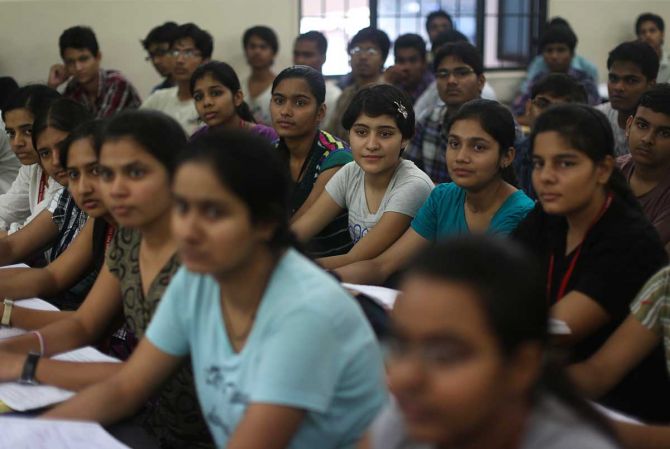From UPSC perspective, the following things are important :
Prelims level: na
Mains level: detrimental effects of the booming coaching industry on students

Central Idea:
The article discusses the detrimental effects of the booming coaching industry on students’ mental health, educational values, and overall well-being. It emphasizes the need for a shift in focus towards holistic education and the nurturing of students’ inner needs.
Key Highlights:
- Concerns regarding the negative impact of the coaching industry on students’ welfare, leading to suicides and academic disengagement.
- Rise of coaching centres catering to various competitive exams, resulting in students abandoning traditional schooling.
- Lack of policy support for students beyond school, allowing coaching centres to become dominant in shaping students’ education.
- The importance of addressing mental health, learning, and understanding in education, as highlighted in the National Education Policy.
- Critique of the coaching culture for neglecting essential aspects such as sleep, social interaction, and identity development.
- Emphasis on the role of education in understanding and catering to the diverse needs and aspirations of students.
- Advocacy for a shared vision where student well-being is prioritized over mere academic achievement.
Key Challenges:
- Balancing the pressure for academic success with the need for holistic development.
- Overcoming the entrenched influence of coaching centres on students and parents.
- Realigning educational priorities to focus on mental health and emotional well-being.
- Addressing societal expectations that contribute to stress and false expectations among students.
- Encouraging collaboration between schools, parents, and policymakers to foster a supportive educational environment.
Main Terms:
- Coaching industry
- Competitive exams (e.g., NEET, JEE, CUET)
- Mental health
- Holistic education
- National Education Policy
- Identity development
- Academic pressure
- Emotional stability
- Well-being
- Co-agency
Important Phrases:
- “Children are not machines”
- “The role of education”
- “True education is value imparting”
- “Learning is a process”
- “Obsession with coaching”
- “Holistic development”
Quotes:
- “Children are walking away from classroom teaching into coaching centres, often with parental support.”
- “The obsession with coaching will never be able to validate and strengthen new ideas, approaches, and research, required for human flourishing.”
- “Students go to school to become purposeful, reflective, and responsible.”
Useful Statements:
- “If coaching centres are going to be the foundation of these years, then the youth of today will become directionless.”
- “Children suffer from anxiety and are unable to cope.”
- “As a country, we need a shared vision, where well-being is the goal of education and co-agency is a guiding light.”
Examples and References:
- Rise of coaching centres like Kota, which have become parallel systems to traditional schooling.
- Concerns about students opting for dummy schools to focus solely on coaching, neglecting the value of classroom education.
Facts and Data:
- The coaching industry generates Rs 6,000 crore annually and is growing at a rate of 7-10% per year.
- Instances of student suicides linked to academic pressure and coaching culture.
Critical Analysis:
The article effectively critiques the dominance of the coaching industry and highlights the need for a more holistic approach to education. It exposes the negative consequences of prioritizing academic achievement over students’ mental health and overall well-being. However, it could provide more concrete suggestions for addressing these issues and overcoming the challenges posed by the coaching culture.
Way Forward:
- Implement guidelines and regulations for coaching centres to ensure student welfare.
- Strengthen support systems for students beyond academics, focusing on mental health and emotional development.
- Promote collaboration between schools, parents, and policymakers to create a nurturing educational environment.
- Encourage a shift in societal attitudes towards education, valuing holistic development over narrow academic success.
Get an IAS/IPS ranker as your 1: 1 personal mentor for UPSC 2024
